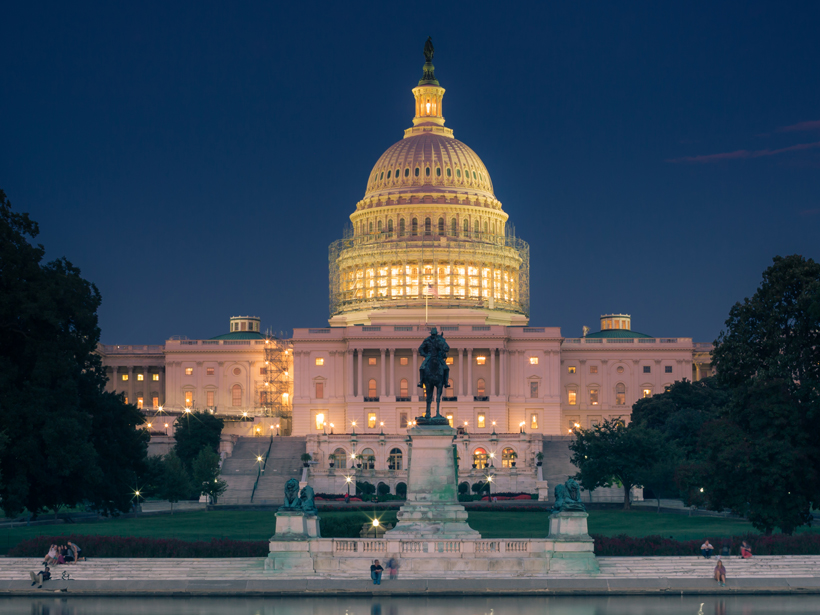The bipartisan spending bill for fiscal year (FY) 2016 offers significant across-the-board funding increases to science agencies.
Early this morning, the House Appropriations Committee introduced a bipartisan spending bill for fiscal year (FY) 2016 that offers significant across-the-board funding increases to science agencies.
“This bill provides responsible funding for nearly all of the federal government, while helping to stop wasteful and unnecessary spending and reining in regulatory overreach that hinders growth and job creation,” said Hal Rogers, the chairman of the House Appropriation Committee.
The omnibus bill, which includes all 12 appropriations bills, would fund the rest of the current fiscal year through 30 September 2016. Congress is expected to vote on the bill in the next few days.
Science Funding Increases
The spending bill includes $5.8 billion for the National Oceanic and Atmospheric Administration, which is $325 million above the FY 2015 enacted level, a 5.97% increase. It also includes $19.3 billion for NASA, up 7.08% from the FY 2015 enacted level. Notably, the omnibus bill includes a 13.43% increase for NASA’s Planetary Science division. The language of the bill encourages NASA to direct $175 million toward a mission to Jupiter’s moon Europa, including a landing component.
The bill allocates $1.062 billion to the U.S. Geological Survey (USGS), up 1.6% from the FY 2015 enacted level. This includes an additional $1 million for USGS’s $26 million volcano hazards programs. The bill also allocates $7.5 billion to the National Science Foundation for FY 2016, an increase of $119 million (1.62%) from the FY 2015 enacted level.
“The omnibus funding bill introduced today is a critical first step in recommitting the U.S. to its role as an international leader in scientific innovation,” said Christine McEntee, chief executive officer and executive director of the American Geophysical Union. “Science-related agencies will be relieved from the disruption of damaging cutbacks, program delays, and costly shutdowns once the bill is enacted, allowing them to carry on with their important work.”
Continuing Resolution
If Congress doesn’t vote on the new spending bill by Tuesday, the government will shut down.
The bill was introduced without policy riders that included language that would restrict clean-air efforts and language to block agencies from using climate change-related science to inform policy decisions. A rider is an additional provision added to a bill that doesn’t necessarily relate to the bill’s contents.
In the afternoon, the Senate passed a short-term bill—called a continuing resolution—that will allow the government to remain open until 22 December. If Congress doesn’t vote on the new spending bill by then, the government will shut down, forcing government workers to cease their regular duties.
To read a summary of all of the bill’s spending allocations for the sciences, click here.
—JoAnna Wendel, Staff Writer
Citation: Wendel, J. (2015), Spending bill gives science agencies financial boost, Eos, 96, doi:10.1029/2015EO041983. Published on 16 December 2015.
Text © 2015. The authors. CC BY-NC 3.0
Except where otherwise noted, images are subject to copyright. Any reuse without express permission from the copyright owner is prohibited.

